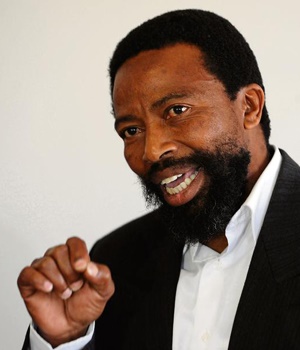
The matter of abaThembu King Buyelekhaya Dalindyebo exemplifies a constitutional crisis that is borne by the unfinished business of our transition since 1994, writes Thami ka Plaatjie
I pick up Prince Xhanti Sigcawu of the Xhosa nation in Dutywa and we head for Mthatha to meet with abaThembu King Buyelekhaya Dalindyebo.
The open expanse of the Eastern Cape and its colourful rural homesteads interrupt the monotonous drive as we share our bewilderment at the fate that awaits the king.
The drive is precarious, with many sheep and goats crossing the road in utter indifference to the weight of the dilemma on our minds. We meet with the king in Mthatha on December 27 and find in him good spirits. We offer our royal salutation and are ushered into the main room, where we hold a conference with the monarch on the eve of this trying moment in his life.
The matter of his conviction illustrates a constitutional crisis borne by the unfinished business of our transition since 1994.
The travesty of the conquest and relegation into insignificance of the African heritage and customary beliefs has been brought to stark public attention. Customary law is recognised by the South African Constitution and many rural communities uphold it as a veritable system that governs their lives.
The king asserted in his invocation of his rule and authority in Constitutional Court papers that: “The courts failed to have regard to the fact that the young men it is alleged I assaulted were brought by the community to me in my capacity as king and the highest judicial authority within the kingdom. The offenders had been arrested by the community, for rape, housebreaking…”
The Transkei Authorities Act and the Black Administration Act gives the king the power to mete out corporal punishment. So, Dalindyebo presided over a case in his capacity as a king, a vital and material fact the courts glaringly ignored.
Dalindyebo was convicted as a civilian and not as a king. This was necessary in order to denude him of his status as king so that he was rendered weak, submissive and vulnerable in the eyes of the law.
This was the same strategy that apartheid used to oppress Africans – we had to be dehumanised before we could be told we were inferior. Our courts uphold Roman-Dutch law, euphemistically called civil law, and disregard customary African law.
Africans remain a subject, a conquered and colonised people in their own nation, notwithstanding all pretensions to the contrary. We are still obsequious slaves in modern clothes following the dictates of the West. This fact is evident in academia, healthcare, business and governance, where indigenous belief systems play second fiddle.
As a multilingual and multicultural country, we are once more reminded that this multiracialism is a mere act of lip service, since African culture and values, and their existential orientation and epistemological derivation, have no role or place in the courts of the West.
The matter of the king was referred to the Constitutional Court, which utterly failed to address this matter. Its verdict was that there was no case to consider. Could it be that they are not qualified to deal with the constitutional crises affecting civil law and customary law?
Could it be that their training and didactic upbringing has rendered them jaundiced towards African jurisprudence? The fact that there is no precedent of charging and imprisoning a reigning king in South Africa could also have given them pause in venturing into these uncharted waters.
The fact that the court could not even proffer reasons for its decision is all the more mysterious, and exemplifies its assumed arrogance in the face of an act of injustice. In short, it abdicated its responsibility and has become a law unto itself instead of its upholder.
The truth is that this case and the manner in which it was handled by the Constitutional Court is an affront to the Constitution itself. Those charged with upholding the Constitution are themselves selective in how they address issues brought to their attention, and thus have failed in their noble duty.
My verdict is that they are pusillanimous or, at worst, truculent towards customary law.
South Africans will live with the guilt of the imprisonment of a king on their national conscience. Where are the defenders of our traditions and heritage? Where are the last legions of a king in the battlefield?
The great house of Mtirara, of Ngangelizwe, of Dalindyebo and of Jonguhlanga has endured numerous historical upheavals over many years. A dark cloud hovers ominously over the Thembu nation after the conviction of their king.
It was the same kind of dark cloud that hung over this nation when abaThembu King Sabata Dalindyebo was exiled for refusing to succumb to the homeland system and joined the ANC and its military wing. This he did while other kings opted to coexist with the apartheid regime.
A poet rose in a feat of frenzy and trance at a national meeting of the Thembu nation last year in Mthatha and asked laconically: “What bad omen has befallen the house of Dalindyebo?”
He implored the many gushing rivers, such as Mbhashe and Iqhili, to make their voices known in loud unison. He extolled and invoked the long lineage of abaThembu royalty and invited their spirits to keep eternal vigil over Sabata’s son, Buyelekhaya, the son of NoMoscow.
As a nation, we will forever live with the conscience of having tried and convicted a reigning king in the same way as the British have lived with the guilt of Oliver Cromwell, the republican, who beheaded King Charles I.
Ka Plaatjie is the head of ANC research and advisor to Lindiwe Sisulu




 Publications
Publications
 Partners
Partners








